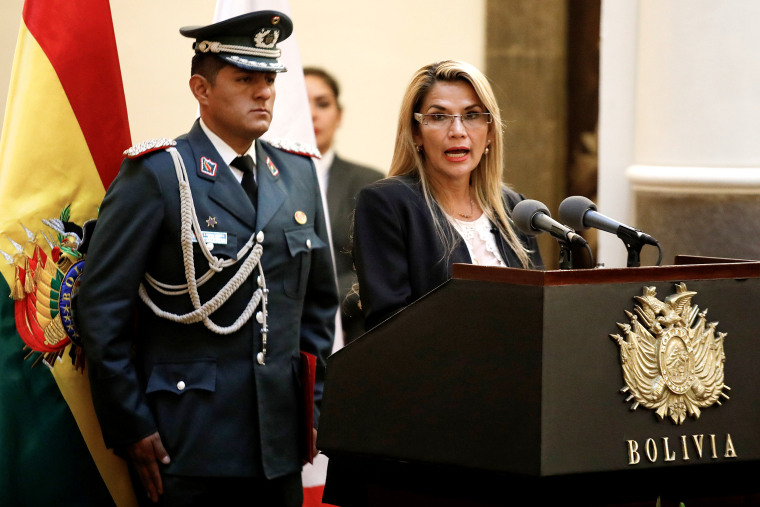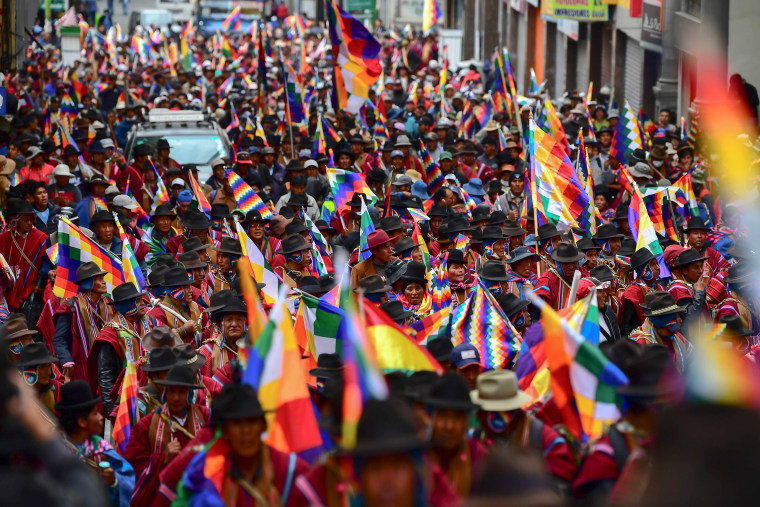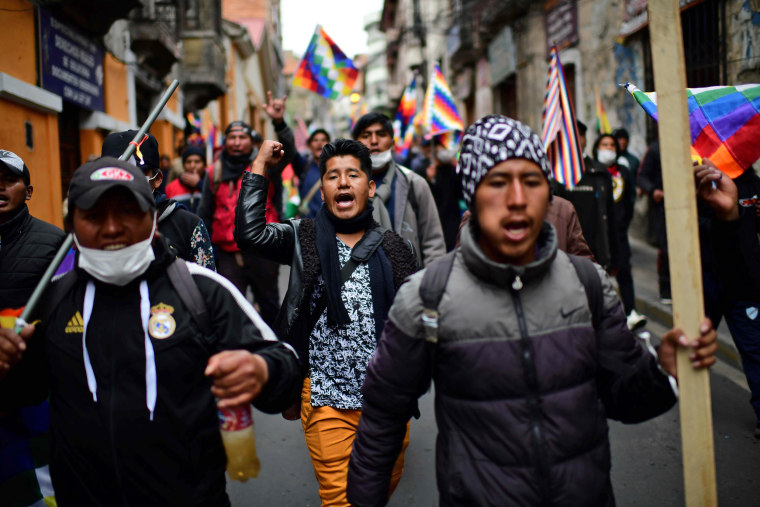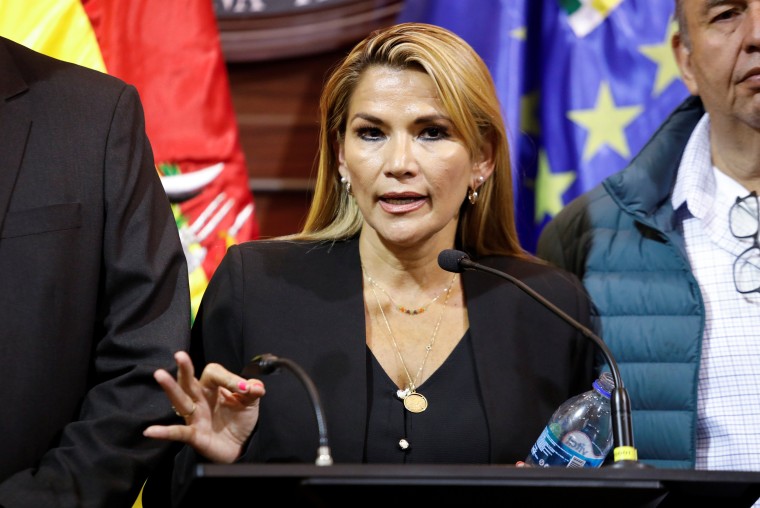Bolivia’s interim President Jeanine Añez Chavez is facing daunting challenges, including questions at home over her legitimacy, as the political crisis in the polarized Andean country deepens.
Añez, 52, a religious conservative, was second vice president of the Senate and became interim president of South America’s poorest country Tuesday. So far, she seems to have the backing of the country's institutions, including the military and the police, and has been recognized by the U.S. government, as well as the United Kingdom, Brazil, Colombia and other conservative administrations in Latin America.
But despite the international recognition, she continues to face pressure at home from supporters of former President Evo Morales.
She lashed out against Morales on Thursday and criticized Mexico’s government for allowing him to rally his supporters from Mexico where he was granted asylum.
"We have to let the Mexican government know that cannot be happening,” Añez said.

She also announced Thursday that Morales’ socialist party MAS can participate in new presidential elections, but said Morales wouldn't be allowed to run again since he's barred from seeking a fourth consecutive term. His vice president, Alvaro Garcia, also won’t be allowed to run for president.
Late Thursday, the interim government and MAS lawmakers seemed to have reach an accord to hold new presidential elections. Under the Bolivian Constitution, new elections must be held within 90 days of Morales’ resignation. No specific date has been given yet for the upcoming election.
Morales, Bolivia’s first indigenous president, claimed to have won a fourth term in an Oct. 20 election. That sparked nationwide protests over fraud and an audit by the Organization of American States that found widespread irregularities. Morales resigned Sunday under pressure from the armed forces following massive protests.
Yet Morales remains a key player in Bolivian politics even from his exile in Mexico City. His party controls a majority in both houses of Congress, and he's rejected Añez's current role as interim president. In Bolivia, Morales supporters are keeping up the pressure with protests.
Morales has the backing of Mexico, as well as other left-leaning governments in Latin America, including Argentina, which has a significant Bolivian population.
Añez was fifth in the line of succession before Morales stepped down, but those above her — who were also members of the MAS party — resigned, clearing the way for her to become interim president.
Bolivia’s constitutional tribunal quickly released a statement saying it was constitutional. Some Morales backers tried unsuccessfully to recant their resignations.
Violent clashes between Morales loyalists and police in the capital, La Paz, erupted Wednesday and continued well into the night. There were also protesters in El Alto, a bastion of Morales.
A political veteran faces daunting obstacles
Añez, 52, is a religious conservative from the northeastern region of Beni, traditionally a stronghold of the opposition. An attorney and a former media executive, she began her political career in 2006 as a member of the constituent assembly. She was elected to the Senate in 2010 and re-elected in 2014.
The obstacles she now faces are immense.
“Her role is exclusively to do three things,” said Eduardo Gamarra, a professor at Florida International University in Miami who has studied Bolivia extensively. Añez, Gamarra says, needs to remain in office despite the unrest, call for elections and reassemble the country's electoral tribunal.
“Problem is, she only has until Jan. 22nd. It’s a huge task in two months,” he said.

For now, Gamarra points out that Añez is only there to fill in for Morales, whose term would have ended Jan. 22.
Despite the legislature's late announcement Thursday that the parties had agreed to hold elections sometime soon, the fluid situation is still a cause for concern.
“There is fear Bolivia can return to where it was a couple of days ago, with no president and no congress," said Gamarra. "It’s a huge power vacuum. That’s what most people fear.”
Añez began work at the presidential palace Wednesday and has insisted her only objective is to call elections as soon as possible.

Even so, the opposition, and Morales in Mexico, are a key part of what happens next.
“It’s really up to Evo Morales in Mexico. He has to get his party to play," Gamarra said.
Follow NBC Latino on Facebook, Twitter and Instagram.


